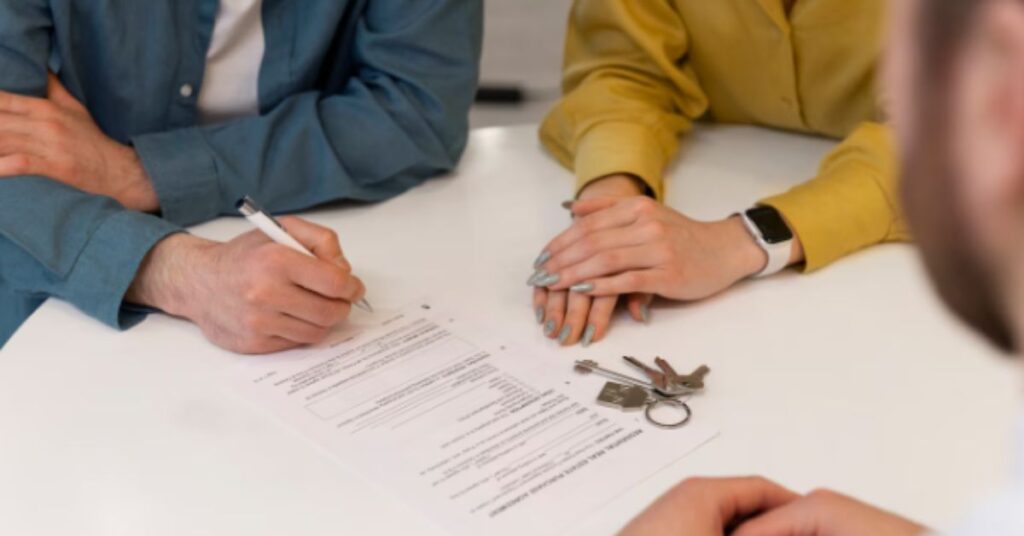Dubai continues to attract property buyers from around the world. With its tax-free income, stunning skyline, and global connectivity, it’s no wonder so many people dream of owning a home or investment property in the emirate. However, for buyers unfamiliar with the local property laws, the process may seem daunting at first.
Fortunately, the legal process in Dubai is well-structured and transparent, especially for those working with the right professionals. Whether you’re purchasing a holiday home, relocating, or building a property portfolio, understanding the legal steps involved is key to a smooth transaction.
Know Who Can Buy and Where
The first step is to confirm your eligibility. Foreigners are allowed to buy property in designated freehold areas. These include hotspots like Dubai Marina, Downtown Dubai, Palm Jumeirah, Jumeirah Village Circle, and Business Bay.
Freehold ownership means you own the property and the land it sits on indefinitely. Unlike leasehold, where ownership is time-bound, freehold gives full control, including the right to sell, lease, or bequeath the property.
There is no need to have a residency visa to purchase property in Dubai, although certain property investments may later qualify you for long-term residency options.
Decide Between Off-Plan and Ready Properties
Dubai’s property market offers both off-plan and ready properties. Each comes with distinct legal considerations.
Ready properties are completed units that can be moved into immediately. They’re usually available in the secondary market and come with existing infrastructure and amenities. The legal process here tends to be faster and more straightforward.
Off-plan properties are bought from developers before construction is finished. These usually come with staggered payment plans but also carry more risk. It’s crucial to confirm that the developer is registered with the Dubai Land Department and that the project is approved under the Oqood system, which protects buyers’ rights.
Before making a decision, weigh the pros and cons of each and ensure your chosen property meets your short- and long-term goals.
Hire a Licensed Real Estate Broker
Once you’ve identified the right area and type of property, engage a licensed real estate agency in Dubai. This is an essential step, especially for foreign buyers. All brokers must be registered with the Real Estate Regulatory Agency (RERA), which regulates real estate professionals in the emirate.
A registered agent will help you find properties that suit your budget and requirements, manage negotiations, and most importantly, ensure that all documents and legal steps are properly handled.
Avoid dealing with unregistered individuals or agencies, as this could lead to fraudulent transactions or legal disputes.
Sign the Memorandum of Understanding (MoU)
Once you’ve agreed on the property and price, both buyer and seller sign a Memorandum of Understanding (MoU), also referred to as Form F. This outlines all the agreed terms, including price, payment method, and any conditions specific to the deal.
Typically, the buyer pays a 10% deposit at this stage, which is held by the broker or seller until the transaction is completed. This deposit is forfeited if the buyer pulls out without a valid reason, so it’s important to review all terms carefully before signing.
Although the MoU is not a full legal sale contract, it holds weight and acts as a preliminary agreement until the transfer of ownership is finalised.
Apply for a No Objection Certificate (NOC)
Before a property can be legally transferred, the seller must obtain a No Objection Certificate (NOC) from the developer. This confirms that there are no outstanding service charges or legal issues tied to the property.
The NOC process usually takes a few days to a week. The fee for this document varies depending on the developer, but it generally falls between AED 500 and AED 5,000.
The NOC is critical for the ownership transfer to proceed at the Dubai Land Department. Make sure it’s collected early to avoid delays in the process.
Complete the Ownership Transfer at the DLD
With the NOC in hand and payment arrangements made, the final step is the transfer of ownership. This is done at the Dubai Land Department (DLD), where both the buyer and seller must be present, along with the broker or a legal representative.
Documents required include the original title deed, valid passports or Emirates ID, the signed MoU, and proof of payment. Buyers must also pay a 4% DLD transfer fee and AED 580 for the issuance of the new title deed.
Once completed, the title deed is issued in your name and you are legally recognised as the owner of the property.
If You’re Taking Out a Mortgage
If you’re financing your purchase through a bank loan, the legal steps include a few more layers. You must first obtain pre-approval from a UAE bank. This gives you a clear idea of how much you can borrow and helps streamline the buying process.
After signing the MoU, the bank conducts a valuation of the property. Once the valuation is complete and the mortgage is approved, the bank releases the funds at the time of ownership transfer.
Mortgage buyers should also be aware that the bank holds the title deed until the loan is fully repaid. Additionally, the mortgage itself must be registered with the DLD, which incurs an additional registration fee.
Understand Your Ongoing Legal Duties
Ownership doesn’t end at purchase. There are several ongoing responsibilities, particularly around service fees and regulatory requirements.
Annual service charges are payable to the property developer or building management and cover maintenance of shared areas, security, and other services.
If you plan to let the property, your rental agreement must be registered with Ejari. This is the official government system that ensures all rental contracts are valid and enforceable.
You’ll also need to register your utilities with DEWA (Dubai Electricity and Water Authority) and may want to take out insurance for extra protection, especially for investment properties.
Consider a Residency Visa
Dubai offers attractive residency options to property owners. A three-year visa is available for properties valued at AED 750,000 or more. If you invest AED 2 million or above, you could qualify for a 10-year Golden Visa.
The application process involves submitting your title deed and proof of property value. While not guaranteed, this is a major incentive for overseas investors and long-term residents alike.
Always check the latest criteria from the General Directorate of Residency and Foreigners Affairs (GDRFA) or consult your real estate agent for updated visa policies.
Final Thoughts
Buying property in Dubai is a significant financial and personal milestone. The legal process, while structured, can involve numerous steps that need careful attention. From checking eligibility and engaging a licensed agent, to securing a No Objection Certificate and completing the title deed transfer—each stage is vital.
Working with a reputable real estate agency in Dubai ensures your transaction is handled professionally and lawfully. With the right guidance, you can secure a valuable asset in one of the world’s most dynamic property markets.
By following these legal steps, you’ll not only safeguard your investment but also lay the foundation for a secure and rewarding future in Dubai.






